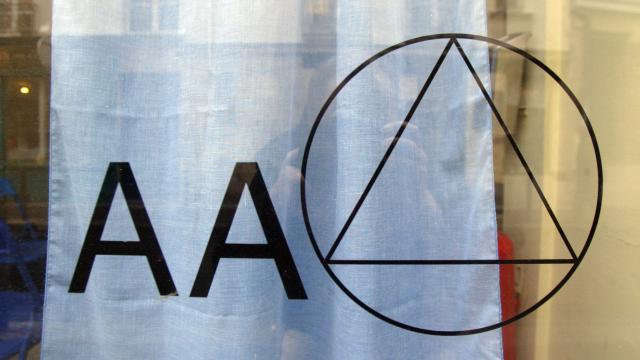A new analysis of existing research this week suggests that Alcoholics Anonymous (AA) and similar 12-step facilitated peer counselling programs (TSF) really can help people dealing with alcohol use disorder to abstain from alcohol. Compared to other methods, like cognitive behavioural therapy, AA-type programs seem to provide similar benefits in most health-related outcomes. Where AA and TSF programs may perform better on average is in the percentage of program participants able to abstain from alcohol for about a year or longer.
But the findings don’t mean that AA/TSF isn’t without its flaws or that it’s necessarily meant for everyone with alcohol problems.
The new research—a review of 27 studies and randomised clinical trials involving over 11,000 people—was published Wednesday by the Cochrane Library, a British-based research organisation. Many scientists consider Cochrane reviews to be some of the most well-researched and comprehensive looks at a topic.
The review analysed studies comparing AA and AA-like 12 step programs to other counselling approaches, including those involving a therapist, as well as to no treatment at all. These included 12-step programs following a set protocol established by the larger organisation (known as manualised) as well as not (called non-manualised). Other methods studied included therapy employing motivational enhancement and cognitive behavioural techniques, as well as variants of multi-step peer counselling programs.
For most outcomes, such as cutting down on a person’s self-reported amount of drinking, both versions of AA/TSF (manualised and non-manualised) performed as well as any other treatment. But manualised AA/TSF seemed to do better when it came to complete sobriety, based on the combined results of two randomised clinical trials involving 2,000 people. On average, around 42 per cent of people who remained in manualised AA or a 12-step facilitated program (which may involve other approaches in combination with AA) for a year, in these trials, reported being sober a year later, the review found, compared to 35 per cent for people on other treatments like cognitive behavioural therapy. More people in these programs also reported remaining sober two and three years later than did people using other methods.
It also found evidence that AA/TSF leads to substantial health care savings for people with alcohol use disorder, which can often lead to liver damage.
“There is high quality evidence that manualised AA/TSF interventions are more effective than other established treatments, such as CBT, for increasing abstinence,” the authors wrote.
The findings are the strongest validation yet for AA, which has been criticised by many former adherents and some mental health experts. These criticisms include the explicit focus on spirituality (submission to a “higher power”) as a way to cope with alcohol addiction, the negative attitude toward other treatments, including medication, seen in some circles, and the lack of concrete evidence for its benefits.
Though this review may answer that last criticism to a degree, those others remain. The review also suggests that a majority of people who seek out treatment for their alcohol use disorder still find it hard to achieve sobriety, even with AA. For many people with alcohol use disorder, as is the case with other types of substance-use problems, it may be a chronic condition that no one treatment can easily help with, but rather responds to one or more approaches tailored specifically to that person’s needs.
Some advocates also say that the overarching goal of lifelong sobriety espoused by organisations like AA isn’t a healthy way to approach alcohol use disorder. More important, they argue, is that a person is able to function daily as best as they can, not necessarily abstain completely. For some, the forced expectation of constant abstinence may only set them up to fail, much as strict diets rarely help people accomplish long-term significant weight loss. And of course, the free peer counselling provided by AA is both a blessing for many as well as an indictment of how difficult it remains for people in the U.S. to access affordable mental health care.
None of this is to say that AA can’t help someone with alcohol use disorder, just that it may not be right for everyone. And that’s ok, since there are other options available—a message that the authors echoed in an Cochrane interview as well.
These options can include medications like naltrexone, therapy, and secular peer-counselling groups such as SMART, as well as emerging treatments such as MDMA-assisted therapy.
